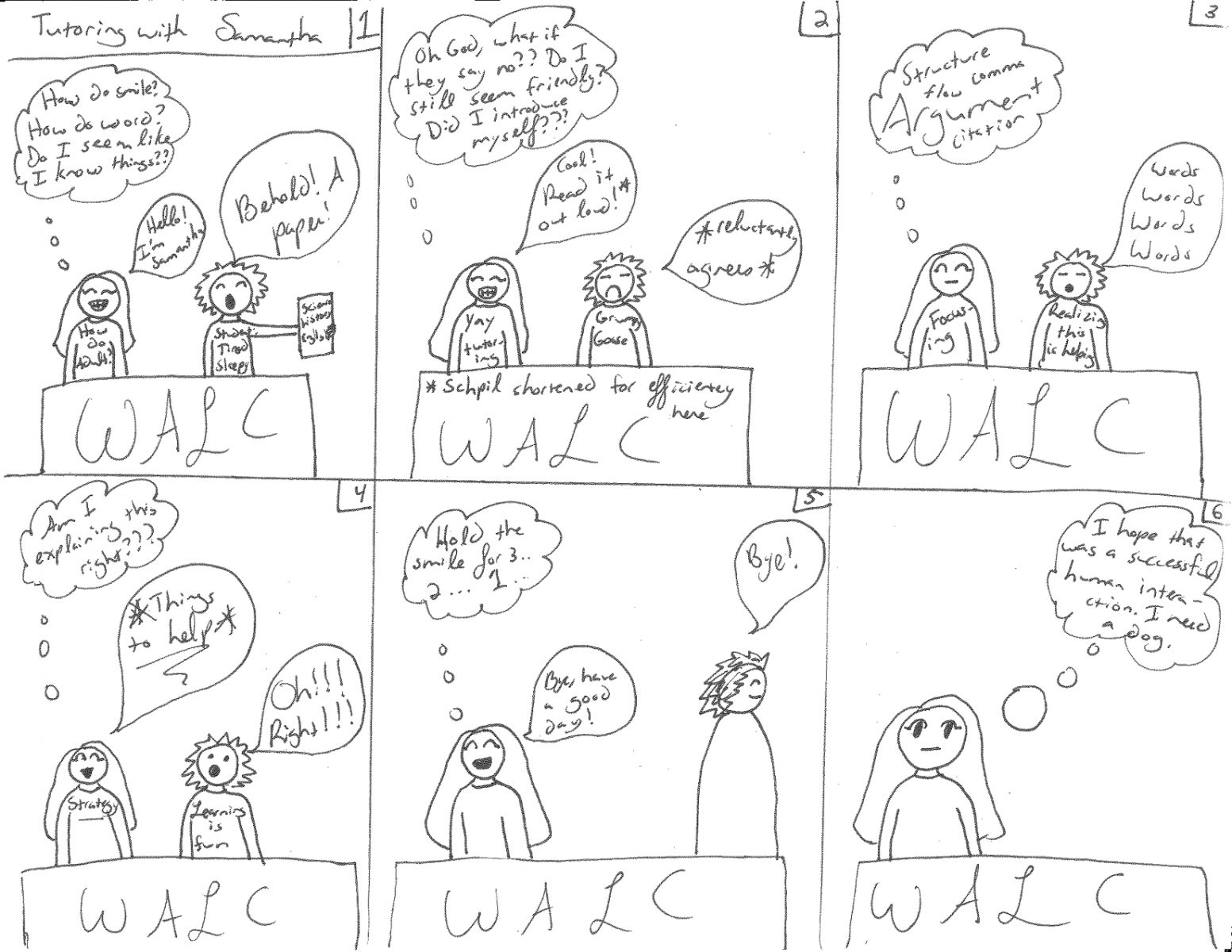–Yustin R.
Not all writing enthusiasts share the same compulsion for perfect standard grammar. However, there is a stereotype that writing tutors – and writers in general – are “grammar Nazis.”
As writing tutors, we learn to focus on higher order concerns (global revision) before lower order concerns (sentence-level revision and editing). That is, we want to make sure the main idea is both clear and supported, that the structure is effective, the content is coherent, and so on, before we worry about punctuation, spelling, and in-text citations (Ryan and Zimmerelli 9-10). On many prompt rubrics, an ‘excellent’ rating for the grammar portion of the project grade will read along these lines: “Errors don’t distract from the ideas of the paper.”
For someone like me, who fits the stereotype of the writer who cares a lot (maybe too much) about standard English, this part of the rubric can mean different things than for someone who doesn’t notice or care about grammar errors according to standard English. What sticks out like a sore thumb in someone’s eyes like mine might seem fine to another reader.
So if you’re a writing tutor like me, I think it’s important to take a step back and think about where people come from, and how another person’s way of speaking and writing is just as much a part of him or her as yours is to you.
This is an excerpt from a paper that University of Waterloo associate professor of English, Vershawn Young, published in a periodical on code meshing and language as a performance. The paper was written by one of his first year students.
“When I come to school, I see a whole generation of scholars getting ready to take on the new challenges of the world. Then I come home and I know there are no scholars here. The only scholars in the streets are dead. The only thing you are taught in the streets in pain, how to give it, how to take it, and if your lucky, how to avoid it. Since the only thing you really learn on the streets is pain, it is safe to assume the last test of the streets would be cheating death. If you win, you live to try again, if you lose, you die” (709).
When I read this passage, I can’t help but notice the single wrong “you’re” and a couple comma splices. However, the speech-like cadence and step-by-step thought process is laid out in a coherent and moving way. If the whole paper were written in this authoritative and easy-to-follow voice, it would obviously still be effective despite its standard grammatical issues.
In my single month of writing tutoring experience, the one thing I’ve taken to heart the most is that even though there’s a time and place to work on syntax and punctuation, another person’s writing doesn’t have to be grammatically precise by my own standards to be successful or powerful.
Works Cited
Ryan, Leigh, and Lisa Zimmerelli. The Bedford Guide for Writing Tutors. Bedford/St. Martin’s, 2010.
Young, Vershawn A. “Your Average Nigga.” College Composition and Communication, vol. 55, no. 4, 2004, pp. 693–715. JSTOR, www.jstor.org/stable/4140667.
